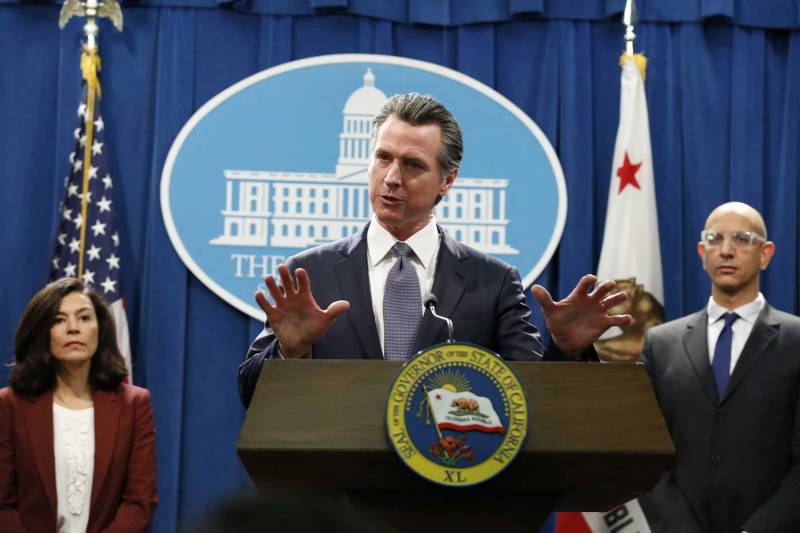Gov. Gavin Newsom called on the state Legislature Friday to expand benefits to front-line workers with COVID-19.
With the virus and its economic effects disproportionately falling on grocery, restaurant and agricultural workers, Newsom threw his weight behind proposals to expand sick leave and workers' compensation for those employees.
"This is where we are seeing the spread — the essential workforce disproportionately represented by the Latino/Latinx community," he said.
Newsom previously signed an executive order granting up to two weeks of paid sick leave for farmworkers and grocery store and fast food workers. Because many of those workers are employed by large companies, they were excluded from a federal expansion of paid leave in the Families First Coronavirus Response Act.
Under another order, essential workers who contract COVID-19 can access workers' compensation insurance, shifting the burden to employers to prove that transmission did not occur on the job.

